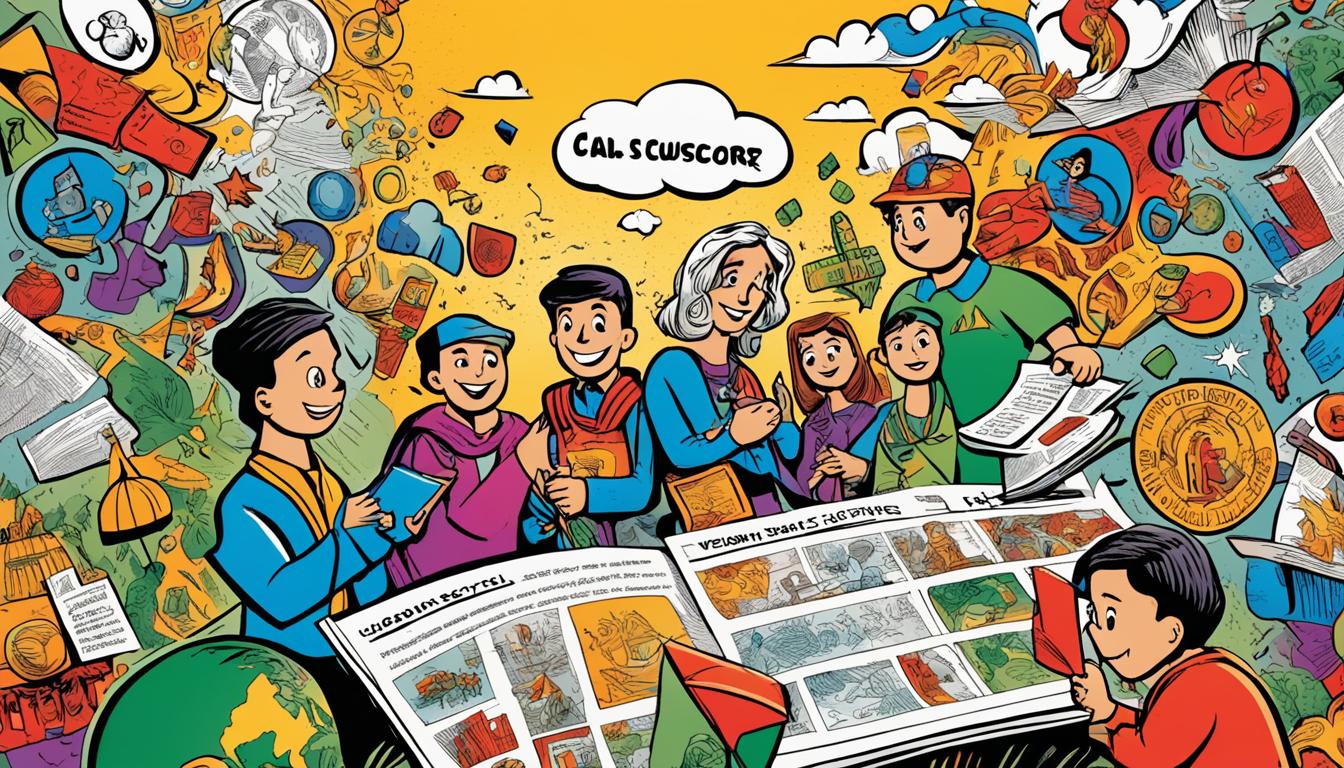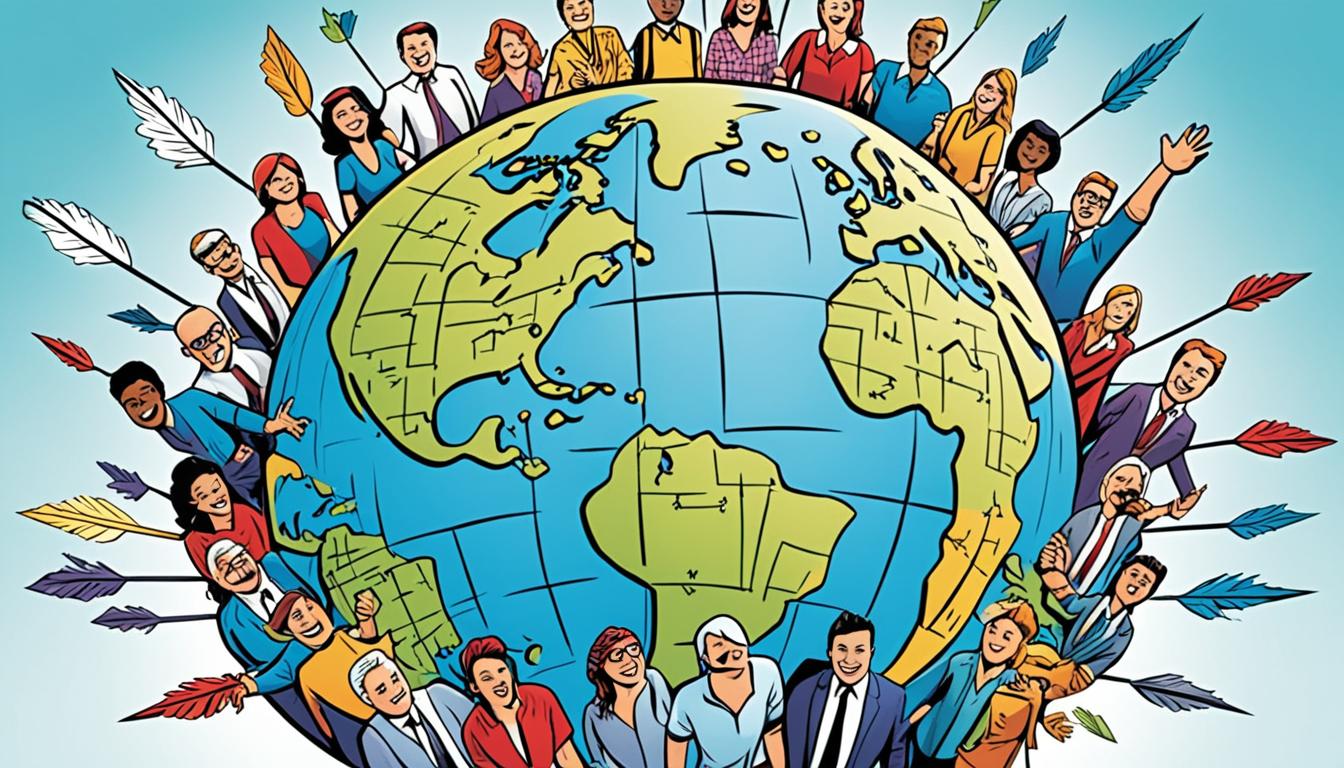Imagine being a young professional named Sarah. You want to broaden your horizons and gain experience. So, you choose to intern abroad in Costa Rica, working with a conservation group.
In Costa Rica, you dive into a new culture filled with different customs, traditions, and languages. It’s overwhelming at first. Yet, you see the chance to grow your intercultural skills.
Through your internship, you work closely with local communities. You learn from seasoned pros and team up with international interns. You develop communication, flexibility, networking, and teamwork skills. These skills boost your career and mold you into a global citizen.
- Developing intercultural skills is crucial for enhancing job prospects and achieving success in today’s globalized workplace.
- Cultivating cultural awareness and competence can open up new opportunities for career growth and personal development.
- Engaging with different cultures enhances communication, flexibility, networking, and teamwork skills.
- By actively appreciating experiences and learning from local people, you can build intercultural skills and cultural awareness.
- Embracing immersion in local surroundings and language learning fosters intercultural competence.
Sarah’s story underlines how vital intercultural skills are for your career. In a world growing closer, firms seek employees who navigate cultural differences well. They want people who can forge strong partnerships and explore new markets. Becoming skilled in intercultural competence sets you up for success and makes you invaluable in diverse settings.
The Importance of Intercultural Skills in a Globalized World
In a world where cultures blend, intercultural skills are key. They help in understanding and working with people from different backgrounds. Having these skills is vital for anyone in the global workplace.
Those with strong intercultural skills do well in diverse teams. They can connect better with colleagues and clients from everywhere. Such skills bridge cultural gaps and ease communication.
Learning about diverse cultures broadens our horizons. It helps us respect and work with the variety in global workplaces. We become more empathetic and cooperative.
Intercultural skills matter not just personally but for business success too. A survey by Ipsos found companies seek employees who can navigate cultural differences. These skills help in dealing with global markets and adapting business strategies.
Unfortunately, many companies don’t train their employees in these skills. This shows the importance of personal effort in gaining cultural understanding.
Table: Benefits of Developing Intercultural Skills in the Workplace
| Benefits | Description |
|---|---|
| Inclusion and Diversity | Creates an inclusive and diverse workplace culture that values different perspectives and experiences, leading to increased innovation and creativity. |
| Effective Communication | Improves communication and collaboration among team members from different cultural backgrounds, reducing misunderstandings and conflicts. |
| Global Market Access | Enables businesses to effectively engage with diverse markets and adapt products, services, and marketing strategies to local cultural preferences. |
| Stronger Business Relationships | Builds stronger and more meaningful relationships with clients, partners, and stakeholders from different cultural backgrounds, leading to increased trust and mutual understanding. |
| Adaptability and Flexibility | Enhances adaptability and flexibility in navigating cultural nuances and changes in diverse work environments, promoting professional growth and development. |
Gaining intercultural skills is a journey of constant learning and self-exploration. It’s crucial for thriving globally, both professionally and personally.
Attitudes for Developing Intercultural Skills
To grow intercultural skills, focus on three attitudes: observation, self-reflection, and curiosity. These are key to understanding and valuing cultural differences. Let’s explore these attitudes further:
Observation
Observation is vital for developing intercultural skills. By noticing how people from various cultures talk, interact, and express themselves, you learn a lot. Pay close attention to their body language, the ways they use language, and their traditions. This helps you see the beauty in human diversity.
Self-Reflection
Self-reflection means looking inward and questioning your thoughts, actions, and biases. It’s about being honest with yourself about how your culture shapes your views. Reflecting on your experiences helps you see where you might have biases. It leads to personal growth and better communication between cultures.
Curiosity
Curiosity drives you to learn about other cultures. It encourages you to ask questions and have deep conversations. When you’re genuinely interested, stepping out of your comfort zone becomes easier. Curiosity brings a sense of wonder and helps you connect with others on a meaningful level.
By developing observation, self-reflection, and curiosity, you’ll get better at interacting in diverse situations. These attitudes foster openness, respect for differences, and a keenness to learn. They are the foundation for good intercultural communication and making society more inclusive.

Opportunities for Developing Intercultural Skills
In today’s world, learning about other cultures is very important. There are many ways to get better at this. Whether you’re studying, working, or just keen to learn, these chances can help. You’ll learn how to understand different people, make new friends, and think globally.
Make the Most of Your Free Time
Using your free time wisely is a good way to start. You could volunteer or work on projects with people from many places. This lets you dive into new cultures, see things for yourself, and question what you think you know.
Build Diverse Friendships
Finding friends from different places is another great idea. Look for these friendships actively. Talk deeply with them, listen, and discover their culture. These friendships teach you about others, and they also grow your ability to understand and respect.
Explore Different Cultures Through Travel
Traveling is a fantastic way to learn about other cultures. It doesn’t matter where you go. What matters is that travel shows you new ways of living. When you’re there, join in the local life. Try their food and talk to the people. What you learn will stay with you forever.

Participate in Intercultural Workshops and Activities
Many places, like schools or community centers, run workshops on cultural understanding. Join these to learn from the experts and do interactive exercises. Meeting people from different backgrounds here is a big plus. It sharpens your skills in dealing with various cultures.
Embrace the Challenge and Growth
Learning about cultures can be tough but rewarding. It asks for an open mind and the courage to explore. The efforts bring growth and make you better at connecting different worlds. Pushing your limits helps you welcome everyone more warmly.
To get better, you must practice and really get involved. Use every chance you get, like volunteering, making diverse friends, traveling, or going to workshops. Embrace the world’s variety. Let it guide your self-improvement and cultural learning.
Cultural Competence in the Workplace
Cultural competence is key in modern, diverse workplaces. As organizations expand globally, they include people from many cultures. To thrive in this diversity, one must understand and respect different cultures. This includes communicating well and promoting diversity and inclusion at work.
Dr. Milton Bennett’s Developmental Model of Intercultural Sensitivity (DMIS) talks about intercultural sensitivity. It means seeing how cultural differences really affect our interactions. By getting better at interacting across cultures, we improve communication and teamwork.
Stella Ting-Toomey’s research shows that cultural similarities make talking easier, but differences spark creativity. This underlines cultural competence’s role in bringing fresh ideas and perspectives together.
| Statistics: | |
|---|---|
| More than 2/3 of respondents stated that their employees engage in business outside of their own country, indicating the rarity of domestic-only trade in today’s global market. | |
| Less than half of the surveyed companies screened candidates for intercultural skills during the recruitment stage, with exceptions found in Jordan, India, and the UAE. | |
| Only around a quarter of employers screened candidates for language competencies despite acknowledging the importance of language skills. | |
| Over 50% of respondents reported encouraging staff to develop intercultural skills, although the report did not specify the methods utilized for this education. | |
| Approximately one-third of companies believed that the national education system was not adequately developing intercultural know-how, leading to graduates leaving university with insufficient intercultural skills. |
Having cultural competence means we can talk and work better together. It’s about liking cultural differences and handling our own biases. We need to learn proper communication, to adjust, and to deal with different cultures.
Employers look for employees with intercultural skills because of our world’s global nature. Yet, not every company checks these skills when hiring. Job seekers should show off their experience working with different cultures.
Encouraging cultural competence at work has many pluses. It makes team work and communication better, boosts creativity, and helps solve problems well. It also increases customer satisfaction and improves the company’s image worldwide.
To be culturally competent, we need a well-rounded approach. This includes respecting others, learning about different cultures, recognizing our biases, and improving our intercultural skills.
By valuing cultural competence, companies make a workspace that sees diversity as an asset. This leads to a stronger and more inclusive environment for everyone.
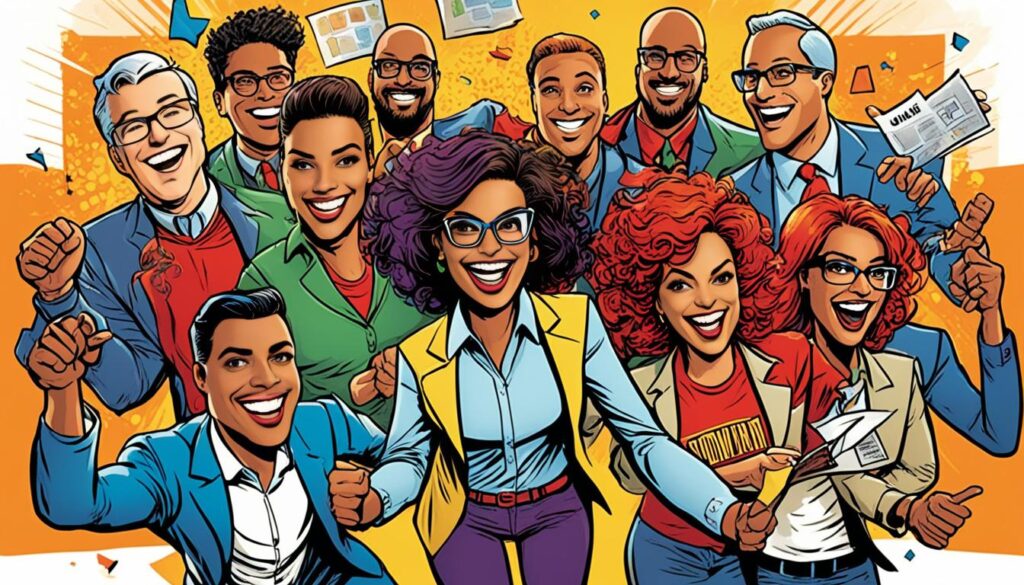
The Benefits of Cultural Competence
Having cultural competence can really help your career grow. People who understand different cultures are sought after in international businesses. They stand out when applying for jobs around the world.
Nowadays, being able to work with people from different cultures is a big plus for employers. Companies work better and make smarter decisions when they respect all cultures. This makes places happier and more productive to work in.
Cultural skills help companies succeed by improving teamwork. They make it easier to communicate across the world. This opens up many doors for career progress and opportunities globally.
Showing you can work well in different cultures makes you more employable. It prepares you to easily adjust to new places. This is very useful for traveling, studying abroad, or moving.
Research shows that employees often overestimate their intercultural skills. This can make it hard for companies to train them in these areas.
Learning about different cultures helps you grow personally and professionally. It lets you understand others better, and see the world in new ways. It’s great for your personal development and for becoming more aware.
Coaching can teach you how to solve conflicts well. This skill helps you build strong, positive teams.
| Statistics | |
|---|---|
| The most culturally diverse quartile of companies performed 36% better financially than the least diverse quartile. | (McKinsey & Co., 2020) |
| Glassdoor found that 76% of job seekers consider diversity and inclusion important when choosing an employer, and 32% would not apply for a position with a company lacking diversity. | (Glassdoor Survey, 2020) |
| Companies reporting above-average diversity in their management teams have revenue 20% higher than those with below-average diversity. | (EHS Today, 2021) |
| Employees satisfied with their company’s diversity, equity, and inclusion (DEI) efforts have a 12 points higher “Happiness Index” score compared to those feeling their company should do more. | (CNBC/SurveyMonkey survey, 2021) |
Organizations that embrace cultural competence meet their goals better. They make their employees happy and perform well, especially in today’s mixed workplace settings.
Not understanding cultural differences can lead to problems. It might upset clients or workers and hurt the company’s success. So, it’s bad for business.
So, improving your understanding of cultures helps you and your workplace. It leads to a happier and more inclusive environment for everyone.

Challenges and Solutions in Developing Intercultural Skills
Developing intercultural skills is vital today. It helps us communicate well and interact successfully in a global world. But it’s not easy. Biases and stereotypes can make it hard to understand and connect with people from other cultures. To overcome these, we need to be aware of ourselves and dedicated to always learning and growing.
One big challenge is dealing with biases. We all have them. They come from our limited knowledge or stereotypes about other cultures. These biases can cause misunderstandings and problems in relationships. To get better at intercultural skills, we must recognize our biases and work hard to move past them.
To fight biases, self-awareness is key. By thinking about our own beliefs and where they come from, we can spot our biases. Knowing about our biases lets us keep an open mind and learn from others. This is a big step towards becoming more competent in intercultural interactions.
Learning about other cultures helps a lot too. When we learn about different cultures, their values, and customs, our understanding grows. We can read books, go to cultural events, or take part in training programs. This helps us challenge what we thought we knew.
Talking openly and listening well are also important. By talking with others from different cultures, we create a space for learning. Listening actively helps us truly understand what others are saying. This way, we don’t just assume things based on our own culture.
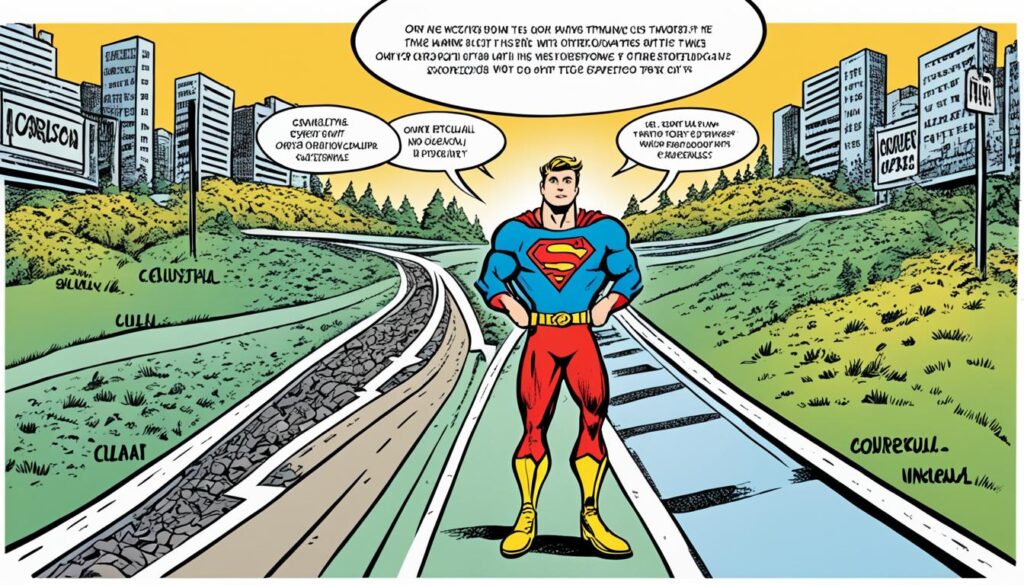
It’s also important to understand how communication styles and customs vary. Different cultures have their own rules about manners, taboo topics, and how to talk to each other. By learning about these differences, we can get better at navigating through them in our interactions.
In conclusion, getting better at intercultural skills takes a lot of work. You need to be aware of yourself, open to learning, and always looking to grow. By working on our biases, embracing diversity, and seeking out cultural exchanges, we improve our communication. This helps us respect each other more, have empathy, and communicate better across cultures.
Building Skills in Cultural Competence
Today’s globalized world needs us to be skilled in cultural competence. It means learning about various cultures and respecting differences. You work on this by knowing more about the world, reflecting on yourself, and embracing others genuinely. This way, you understand diverse people better and create real connections.
To get culturally competent, start by boosting your knowledge about the world. Learn about other cultures, their history, and what they value. It’s good to keep up with news and global issues too. Doing this makes you appreciate different views and stories more.
Looking at your own biases is key to cultural competence. It means thinking about the times you’ve made quick judgments. Realizing and tackling these biases helps you welcome diversity with an open heart. This process highlights where you can grow and learn.
Being culturally competent takes more than just tolerance. It means truly engaging with people who are different from you. This includes making new friends, trying new experiences, and joining in cultural activities. Through these actions, we learn to empathize and respect varied cultures.
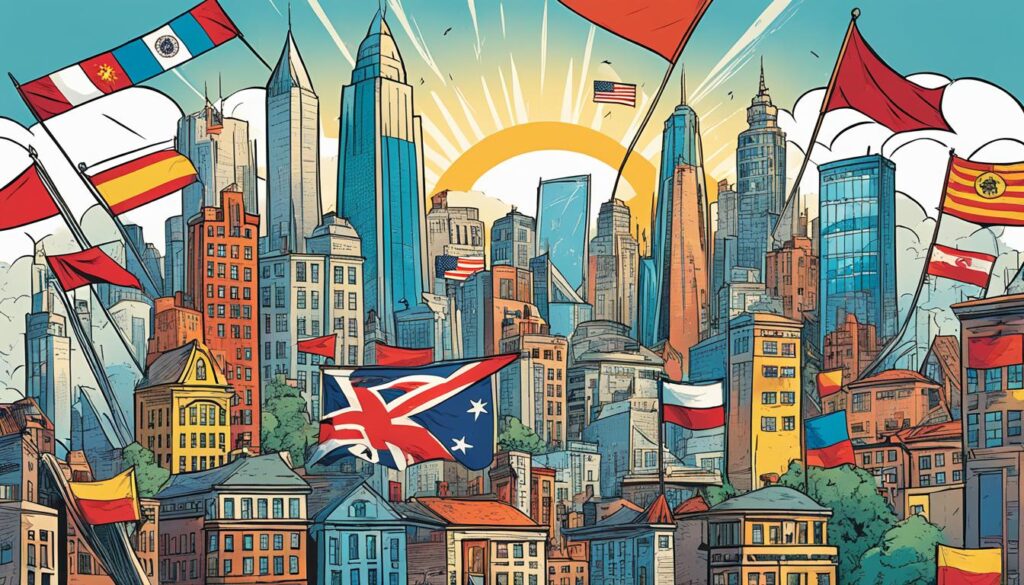
Why is building skills in cultural competence important?
Cultural competence matters a lot for everyone, including businesses and communities. It helps us communicate better and work together smoothly in varied groups. Diverse teams are shown to be more creative, innovative, and productive. This is why cultural skills are so valuable.
Being culturally competent means reaching out and connecting with others not like ourselves. It’s about trying new things, welcoming everyone, and understanding each other. Leaders with these skills can let go of hidden biases. This leads to a more inclusive environment.
Culturally skilled leaders always keep learning and are brave in their decisions. They include many views and work with others to challenge racism. They make plans that welcome everyone and offer training that matters. They talk openly, support social justice, and learn from their mistakes. Embracing different cultures means building genuine relationships and sharing openly in a safe space.
Improving your cultural competence is about more than personal growth. It’s also about making places where everyone, from all backgrounds, feels important and included. Doing this, we help create a world that’s fair and welcoming for all.
The Benefits of Cultural Competence in Education
Cultural competence is key in education, especially where classrooms are diverse. Teachers with good intercultural skills can make inclusive spaces. These spaces make students from all cultures feel important and respected. This approach prepares students for a globalized world, making them ready to be responsible global citizens.
The Hispanic population in the United States is growing. It’s expected to be 25 percent of the population by 2050. By 2043, more than half of the U.S. will be people of color. This shows why being culturally competent is a must. It ensures all students have fair and inclusive chances to learn.
It’s important to recognize biases and stereotypes. Ignoring them can lead to discrimination and misunderstandings across racial groups. Being culturally competent in education brings several benefits, like:
- Enhanced mutual respect
- Improved communication
- A more supportive learning environment
- Increased critical thinking and innovation among students
By valuing cultural competence, schools can help students value different viewpoints. They can develop a global way of thinking. Adding multicultural curriculum and resources can make learning better. It helps students understand the world more fully.
Cultural competence also boosts social mobility. For marginalized groups, it can be life-changing. It gives them the skills and knowledge to succeed in a diverse world.
Both new and experienced teachers need training on cultural competence. Such training helps them understand how cultural differences impact learning. This enables teachers to make classrooms welcoming for everyone. They become spaces that celebrate diversity and promote understanding.
Take Unity Environmental University, for example. They see diversity and equity as essential. Culturally competent education is a key principle there. By focusing on cultural competence, schools help prepare students for a global community. Students learn what they need to thrive in a world that’s more connected than ever. ${‘img’} alt=”diverse classroom”>
As our world gets more diverse and connected, the importance of cultural competence in education grows. Embracing this concept, schools can offer quality education for all. Thus, students gain the skills they need for success in a diverse, global society.
Cultural Competence and Social Justice
In today’s society, it’s important to tackle discrimination, biases, and inequalities. Cultural competence is key in pushing for social justice and a fairer world. By learning how to interact in a diverse society, we can help break down unfair systems and promote inclusion.
In higher education, cultural competence programs aim to teach people how to connect with others from various backgrounds. This includes not just racial and ethnic groups but also those from different economic statuses, sexual orientations, genders, abilities, religions, and national origins.
The Cultural Competence for Social Justice (CCSJ) model offers a way to combine social justice with cultural understanding. It shows how to live and work well in diverse places. The model has five main parts:
- Self-awareness: Knowing your own culture, biases, and advantages.
- Understanding and valuing others: Respecting different cultures and experiences.
- Knowledge of societal inequities: Fighting systemic discrimination and inequalities.
- Skills to interact effectively with diverse people: Communicating and working well across cultures.
- Skills to foster equity and inclusion: Advocating for fairness and belonging for everyone.
Cultural competence for social justice is more than just personal growth. It involves self-exploration, solving group conflicts, changing institutions, and driving social change. This approach includes everyone’s social identities and cultural differences. It prepares individuals for social justice efforts and advocacy.
This model can shape student affairs by developing outcomes, improving staff/faculty training, enhancing student growth, and creating equity-focused programs. By using these practices, schools can celebrate diversity and commit to social justice.
Becoming culturally competent is a continuous journey. It’s about connecting with everyone respectfully, regardless of their differences. This includes race, class, gender, sexual orientation, religion, immigration status, disability, and age.
Social justice educators need to understand culture and self-awareness. They see diversity as a strength and push for inclusion. They also know the importance of continuous learning and professional development.
Assessing cultural competence can involve self-check tools. Teachers can also use journaling to reflect on their practices and experiences with social justice. Such reflection boosts growth and effectiveness in social justice education.
Professional development in social justice can change teacher habits and improve student outcomes. Effective training focuses on content, includes active learning, encourages collaboration, and offers feedback.
Building critical friend relationships among educators helps. It provides a supportive space for discussing curricular issues and overcoming biases. These relationships encourage continuous improvement and learning.
| Statistics and Facts | |
|---|---|
| 50 years have passed since the civil rights movement began with the Montgomery, Alabama bus boycott sparked by Rosa Parks. | |
| Over 100 college campuses have been involved in addressing issues related to social justice and intergroup relations. | |
| The civil rights approach focuses on preventing discriminatory behavior through laws, lawsuits, and penalties. | |
| The prejudice reduction approach assumes that institutional racism stems from bigoted individuals and that attitudes can be changed. | |
| Efforts have been made to implement racism-reduction and prejudice-reduction training programs on college campuses. |
The Role of Cultural Competence in Personal Growth
Learning about different cultures helps us grow personally and professionally. Cultural competence lets us see the world from various viewpoints. It helps us understand ourselves and others better. We become more open-minded and can adapt to new situations easily.
People who understand different cultures create friendly environments everywhere. This skill leads to better teamwork and friendships. It makes our world closer and more connected.
Cultural competence is a journey of learning about ourselves and others. It involves looking at our own biases and understanding different cultures. This journey makes us better communicators and more empathetic friends.
Knowing about different cultures avoids misunderstandings. It makes us more sensitive and respectful in our interactions. This skill is vital in both our personal and professional lives.
As the world grows closer, understanding different cultures is key. It helps us work well with others from around the world. Cultural competence builds bridges across cultures.
Cultural competence works on many levels. It’s not just about knowledge, but also about curiosity and adaptation. It’s about understanding and respecting differences in depth.
The Importance of Personal Development
Personal development is crucial for dealing with different cultures. It’s about improving ourselves through self-reflection and self-care. By understanding our own biases, we can better appreciate other cultures.
A story about Kenneth shows how cultural differences shape us. He traveled from Pohnpei to the USA and faced cultural shock. This experience shows the power of cultural understanding in our lives.
Improving cultural competence involves paying attention and listening. It means putting ourselves in others’ shoes. We learn more by sharing experiences, like meals or language lessons.
| Definition | Description |
|---|---|
| The National Center for Cultural Competence (1998) | A set of values, behaviors, and practices enabling effective cross-cultural work, encompassing respect for beliefs, language, and behaviors of individuals and families receiving services. |
| Betancourt et al. (2002) | The ability to provide care tailored to meet the social, cultural, and linguistic needs of patients with diverse values and beliefs. |
| Lavizzo-Mourey & Mackenzie (1996) | The demonstration of awareness and integration of health-related beliefs, disease incidence, prevalence, and treatment efficacy from a cultural standpoint. |
| Roberts et al. (1990) | The honoring and respecting of the beliefs, interpersonal styles, attitudes, and behaviors of families and multicultural staff at policy, administrative, and practice levels. |
| Denboba of MCHB (1993) | A lifelong commitment to engage in a process of humility in working with patients, communities, colleagues, and oneself in a health care setting. |
| National Alliance for Hispanic Health (2001) | Valuing culture’s positive role in a person’s health, going beyond unbiased care. |
| American Association for Health Education | Understanding and respecting values, beliefs, and attitudes to tailor health education programs across diverse cultures. |
| U.S. Department of Health and Human Services (2000) | Services that are responsive to beliefs, attitudes, language, and behaviors of individuals to ensure their maximum program participation. |
This table shows different views on cultural competence. It’s a vital skill for working across cultures.
Continued Growth and Exploration
Developing cultural competence is a lifelong process. It’s about always learning and staying curious. As the world changes, this journey helps us understand new cultures and ideas.
Cultural competence makes our personal lives richer. It challenges our views and encourages us to think differently. By valuing it, we make the world a more welcoming place.
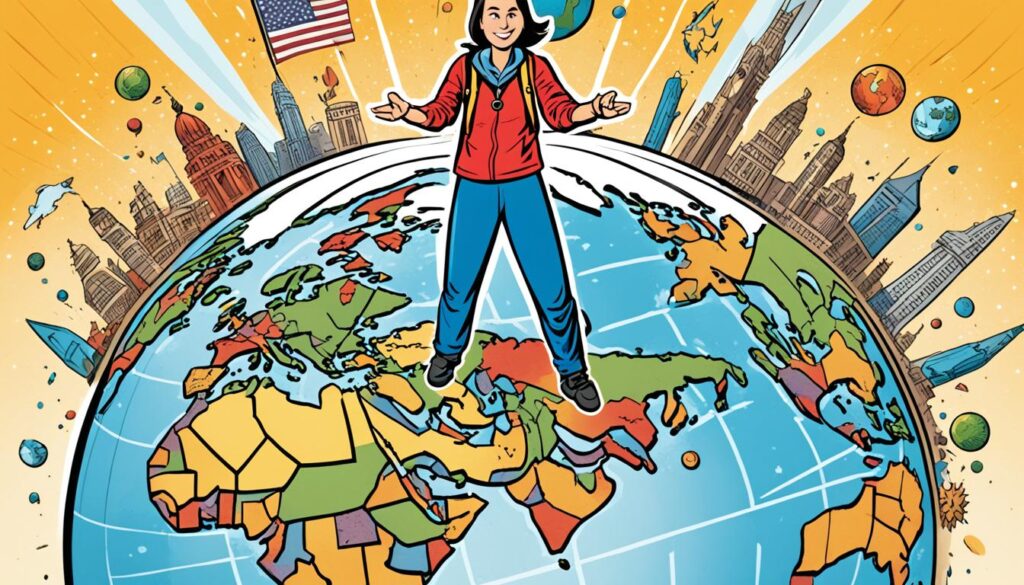
Conclusion
In today’s world, we must grow our cultural skills. Embracing diversity, practicing empathy, and communicating well across cultures can open doors. You can boost your career and help create a world that welcomes everyone.
Understanding different languages is the key to knowing other cultures. It helps us share ideas and cultural insights. Yet, differences can cause misunderstandings. Working on our cultural skills can bridge these gaps.
Improving these skills is a journey that never ends. Engaging with various cultures, breaking down stereotypes, and feeling what others feel improves our connections. It helps us work together better, make smarter choices, and grow in our careers. These skills are vital in today’s diverse workplaces and communities.
Studies show how important it is for students to learn about different cultures. Practical experiences in multicultural settings enrich this learning. Also, a lot of focus is on growing our ability to empathize with others.
Across many fields, the push to improve how we communicate with different cultures is clear. Understanding and valuing diverse cultures can lead to better teamwork, more creativity, and a society that includes everyone.
